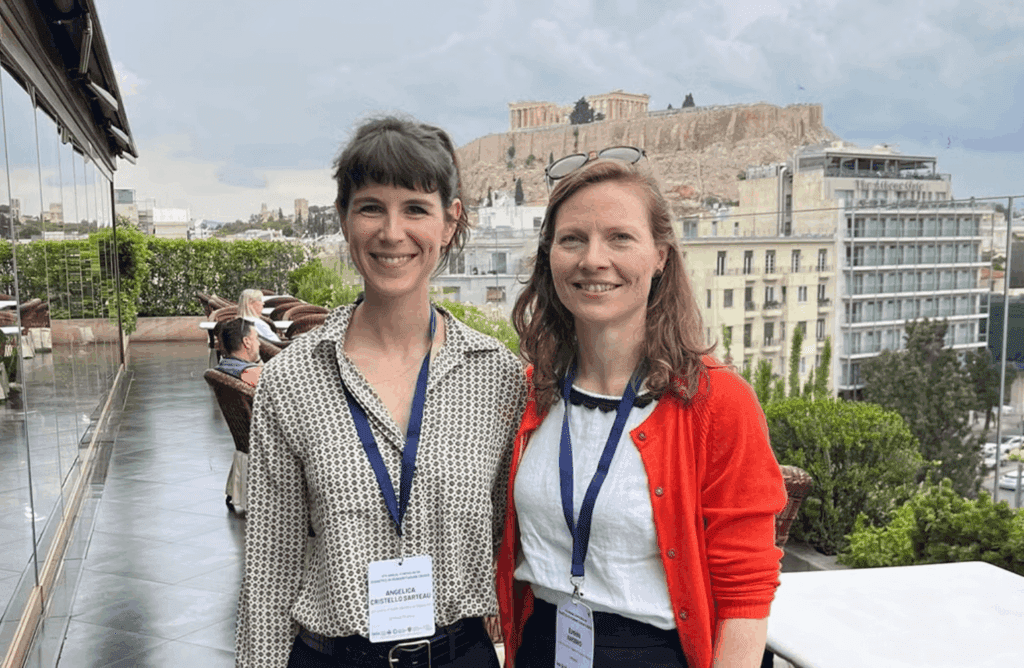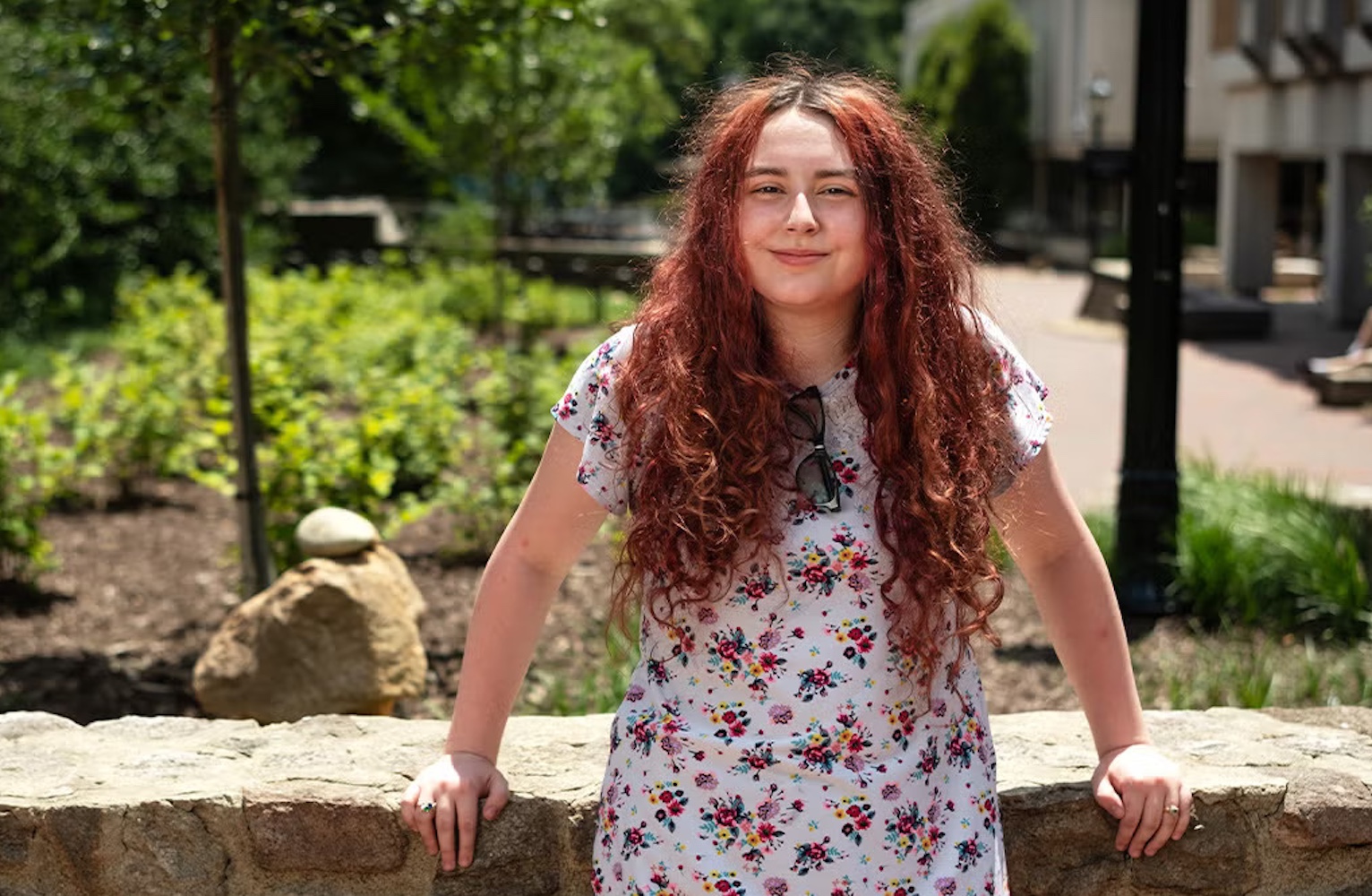 Angelica Cristello Sarteau (left) in Athens, Greece, with her IADA co-lead, Éimhín Ansbro. (submitted photo)
Angelica Cristello Sarteau (left) in Athens, Greece, with her IADA co-lead, Éimhín Ansbro. (submitted photo)
Angelica Cristello Sarteau’s journey to a doctorate in nutrition from the UNC Gillings School of Global Public Health this May has spanned continents, languages and life milestones.
Raised in a bilingual French-English household in a multicultural Massachusetts community, she grew up surrounded by stories from her mother’s travels across the globe. That early exposure to other cultures inspired a belief that working with people to overcome their challenges starts with speaking their language, both figuratively and literally.
Cristello Sarteau credits her upbringing with instilling in her an innate curiosity and penchant for optimization. She realized at an early age that nutrition was a life-changing factor over which people have relatively more control.
“Nutrition has a huge impact on your trajectory, regardless of the extent to which other factors in your life are or appear to be fixed,” she said. “It struck me as the No. 1 way you could take control of your own health.”
As an undergraduate at Harvard College, Cristello Sarteau designed her own global health degree — before that designation was officially offered — by blending medical anthropology, biostatistics and other disciplines. She began learning Mandarin and later traveled to China to study the rapid rise in diabetes amid industrialization.
In China, Cristello Sarteau saw the critical importance of managing Type 1 diabetes, which she calls “arguably the most burdensome and complex chronic disease to manage.”
“Research suggests over 40 factors affect blood sugar at any given moment,” she explained, “and those factors can combine in so many ways to make managing Type 1 diabetes so unpredictable.” Identifying strategies that help people with such a complex condition, she added, can also lay the groundwork for more effective management of other non-communicable diseases.
Cristello Sarteau dedicated her academic career to this idea. Her work centers on conducting research to develop evidence-based interventions that help people better manage Type 1 diabetes, with ongoing attention to those in low-resource settings. Her research has taken her to more than a half dozen countries, where her cross-cultural skills and fluency in five languages have come in handy when conducting research to design empirically robust interventions.
While at Carolina, Cristello Sarteau worked with Beth Mayer-Davis, the Cary C. Boshamer Distinguished Professor of Nutrition and Medicine and dean of The Graduate School, to conduct an NIH-funded study seeking evidence-based dietary strategies for youth with Type 1 diabetes.
Written by Ethan Quinn, The Graduate School
Related Stories

 Angelica Cristello Sarteau (left) in Athens, Greece, with her IADA co-lead, Éimhín Ansbro. (submitted photo)
Angelica Cristello Sarteau (left) in Athens, Greece, with her IADA co-lead, Éimhín Ansbro. (submitted photo)

